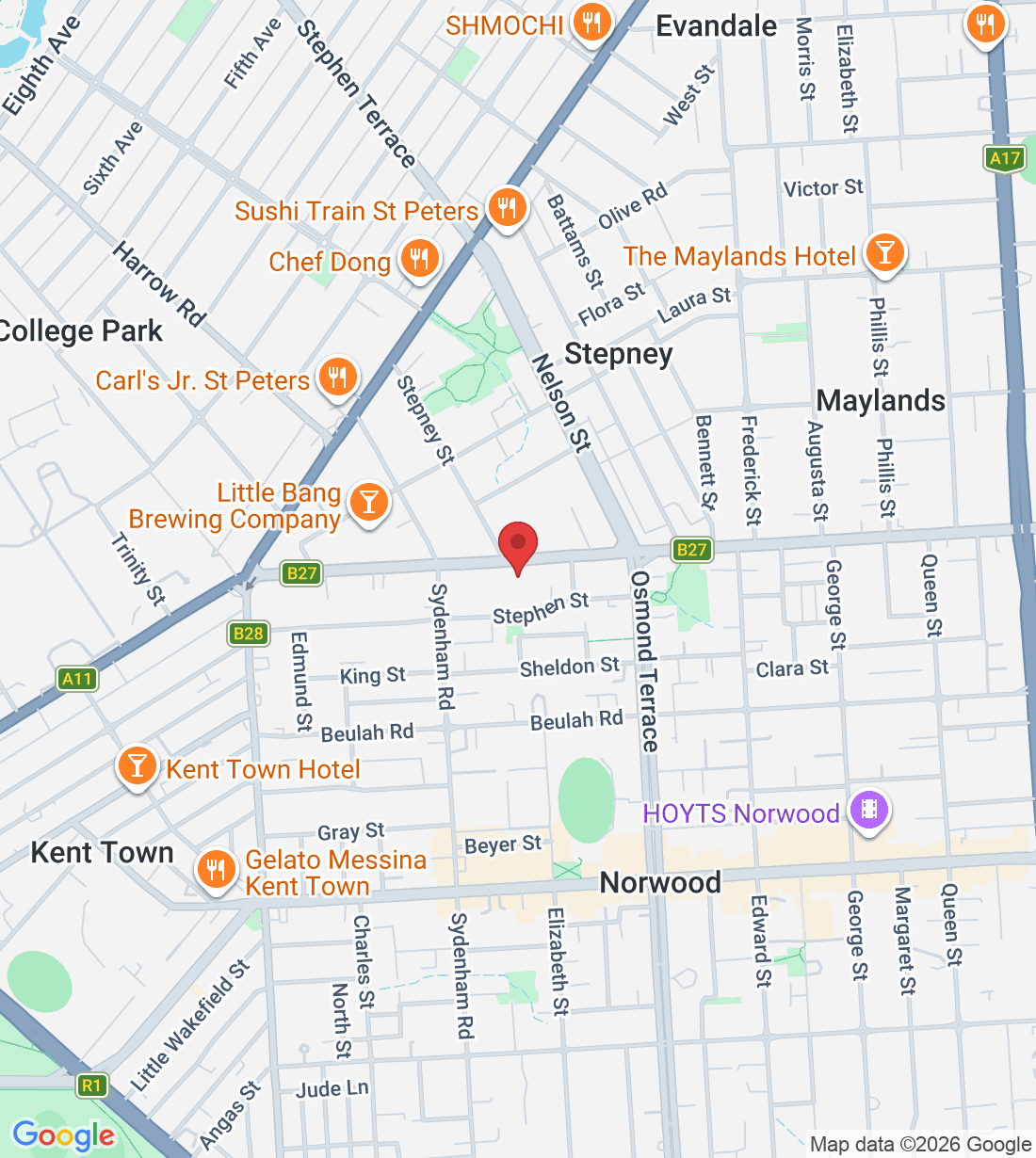Are You Looking For a Men's Pelvic Floor Physiotherapy Clinic in Norwood, Adelaide
5/90 Magill Road, Norwood, SA 5067, Australia
Free Parking Available


Download Your FREE Mens Pelvic Floor Health Information Pack
“8 Top Tips For Improving Your Pelvic Floor Health For Men”
👇 Click the button below to get your FREE Report 👇
5-Star-Rated Physiotherapy Clinic
Norwood, Adelaide
Does Any of This Sound Familiar?
You experience chronic or acute pelvic pain? Pains in the lower abdomen, groin or rectum?
You have difficulty reaching or maintaining an erection, or a loss of control or pain with ejaculation?
You find yourself urinating more frequently than before?
You regularly suffer from constipation or bowel incontinence?
Are you preparing for or recovering from prostate surgery?
If you answered YES to any of the above, firstly know you are not alone. The team at Vital Core Physiotherapy and Pelvic Health can help you.

Got a Question?
Ask Vital Core Physiotherapy and their team of experts
What Is Pelvic Floor Physiotherapy?
Pelvic floor physiotherapy is a type of therapy that focuses on helping people take care of their pelvic floor muscles. These muscles are important because they help control bladder and bowel movements, support our organs, and play a role in sexual health. Pelvic floor physiotherapy can be beneficial for both men and women, and it's all about promoting the strength, flexibility, and overall health of these muscles.
Here are some key benefits of engaging with a pelvic floor physiotherapist:
Pelvic floor physiotherapy is a special type of therapy for the muscles in our pelvic area.
The pelvic floor muscles are located inside our bodies and help control our bladder and bowel movements, support our organs, and play a role in sexual health.
A pelvic floor physiotherapist is a highly trained health professional who knows a lot about these muscles and how to keep them in good shape.
Pelvic floor physiotherapy involves exercises and techniques to help care for these muscles.
The therapist may teach you exercises like squeezing and relaxing the pelvic floor muscles or doing special movements to make them stronger or help them relax better.
Pelvic floor physiotherapy can help with problems like bladder or bowel control issues, pelvic pain, and difficulties with sexual function.
The goal of pelvic floor physiotherapy is to improve the function of these muscles, which can lead to better control, reduced symptoms, and an improved quality of life.
Remember, if you have any concerns or questions about your pelvic floor, it's always a good idea to talk to a healthcare professional or a pelvic floor physiotherapist. They can provide guidance, support, and personalised care for your pelvic floor health.

Download Your FREE Mens Pelvic Floor Health Information Pack
“8 Top Tips For Improving Your Pelvic Floor Health For Men”
👇 Click the button below to get your FREE Report 👇
From Ageing to Injuries: What Triggers Pelvic Floor Issues in Men?
Understanding the causes of pelvic floor problems is important for recognising and addressing these issues. The pelvic floor is a group of muscles that support the pelvic organs, and problems can arise when these muscles become weak, strained, or damaged.
Let's explore some common causes:
Age and hormonal changes: As we age, hormonal changes and decreased muscle tone can contribute to pelvic floor issues.
Obesity: Carrying excess weight can put added pressure on the pelvic floor muscles, leading to strain and weakness.
Chronic constipation: Repeated straining during bowel movements can strain the pelvic floor muscles over time.
Chronic coughing: Conditions like asthma or chronic bronchitis that involve persistent coughing can strain the pelvic floor muscles.
Heavy lifting: Regularly lifting heavy objects without proper technique or support can stress the pelvic floor muscles.
High-impact activities: Engaging in activities such as running, jumping, or intense exercise without adequate pelvic floor support can contribute to problems.
Surgery: Certain surgical procedures, such as prostate surgery in men can impact the function of the pelvic floor muscles.
Genetic factors: Some individuals may have a genetic predisposition to pelvic floor problems, such as connective tissue disorders.
It's important to note that each person's experience with pelvic floor problems can be unique, and multiple factors may contribute to their condition. Consulting with a healthcare professional or pelvic floor physiotherapist can help identify the underlying causes and develop an appropriate treatment plan for you.

Got a Question?
Ask Vital Core Physiotherapy and their team of experts
How Do Pelvic Floor Issues Impact Men's Health?
Pelvic floor problems are not exclusive to women; they can also affect men. The pelvic floor is a complex network of muscles, ligaments, and tissues located at the base of the pelvis, supporting vital organs such as the bladder, rectum, and prostate. Like any other muscle group, the pelvic floor can face various issues that may cause discomfort, disrupt urinary and bowel functions, and impact overall quality of life
Let's explore some common pelvic floor problems in men:
Urinary Incontinence: Men can experience involuntary urine leakage due to weakened pelvic floor muscles, often triggered by factors like prostate surgery or age-related changes.
Erectile Dysfunction: Pelvic floor muscles play a crucial role in maintaining penile blood flow, and problems in these muscles can contribute to erectile dysfunction.
Chronic Pelvic Pain Syndrome (CPPS): This condition involves persistent pain and discomfort in the pelvic region, often associated with an inflamed or irritated pelvic floor.
Overactive Bladder: A condition characterised by an uncontrollable urge to urinate, which may be influenced by pelvic floor muscle spasms.
Prostatitis: Inflammation of the prostate gland can cause pelvic pain and discomfort, sometimes involving the pelvic floor muscles.
Painful Ejaculation: Pelvic floor dysfunction may contribute to pain during ejaculation, affecting sexual satisfaction.
Bowel Control Issues: Weak pelvic floor muscles can lead to difficulty controlling bowel movements or faecal incontinence.

Understanding the different types of pelvic floor problems in men is essential for early detection, accurate diagnosis, and effective management. Seeking medical attention and adopting appropriate treatment strategies can significantly improve the quality of life for men dealing with pelvic floor issues.
Confused About Men's Pelvic Floor Physiotherapy? We Can Help

Fill in the form to request a Call From Our Team
One of our team members will call you for FREE and answer any questions or concerns you may have about your pelvic floor health
Vital Core Physiotherapy Men's Pelvic Floor Physiotherapy

Men's Pelvic Health Assessment
Our experienced Men's pelvic floor physiotherapists evaluate pelvic floor muscle function. The muscles of the pelvic strongly influence bladder and bowel control and sexual function as well as provide support to the spine. Just like muscles of the shoulders of back which can get sore or weak and impact your function, so too can the pelvic floor muscles. We help ALL men with pelvic floor dysfunction regardless of dysfunction, age, gender identity or sexuality. In a Men's Pelvic Health assessment you can expect the following;
Listen to you to gain a good understanding as to how your problem is affecting your life.
Ask questions as appropriate to better understand your specific problem. These are sometimes less about obvious pelvic floor function and more about
Learn more about your lifestyle and your goals to better target management.
Teach proper pelvic floor muscle activation and relaxation techniques.
Discuss lifestyle factors that can impact pelvic floor function, such as diet, hydration, and bowel habits.

Educate and rehabilitate
Your physiotherapist will work with you to develop an individualised program to address your specific pelvic floor concerns.
Tailor exercises to address specific pelvic floor dysfunctions, such as pelvic pain, incontinence, urgency or sexual dysfunction.
Provide education on men's pelvic floor anatomy and function, as well as discuss how specific daily activities may be beneficial or detrimental to pelvic health.
Structure a consistent path forward back to full function and pelvic health.
Incorporate whole body exercise to maximise general and specific pelvic health

Maintenance and Long-Term Strategies
We're here to support you in maintaining optimal pelvic floor health, preventing recurrence, and promoting overall well-being
Develop a personalised home exercise programme to ensure individuals can continue pelvic floor exercises independently.
Develop a self management tool kit to help keep you on track.
Reinforce the importance of maintaining healthy habits, to maintain your pelvic health.
Offer support and guidance for individuals navigating specific life stages or events that may impact the pelvic floor.

By working with your Vital Core Men's Pelvic Health physio you can awareness and control of your pelvic floor muscles, rehabilitate dysfunction, and optimise overall health.

Download Your FREE Mens Pelvic Floor Health Information Pack
“8 Top Tips For Improving Your Pelvic Floor Health For Men”
👇 Click the button below to get your FREE Report 👇
Is the Men's Pelvic Floor Programme Right for You?
Our team of pelvic floor physiotherapists at Vital Core Physiotherapy are experts in women's and men's health and wellbeing, helping 1000's of people to get back to doing the things they love.
Here are just a few of the things our Pelvic Health Physiotherapy Team can do for you:
If you are dealing with pelvic floor issues such as urinary incontinence, faecal incontinence, pelvic organ prolapse, pelvic pain, or sexual dysfunction, the Pelvic Floor Programme is specifically designed to address these conditions.
The Pelvic Floor Programme takes into account your unique needs, symptoms, and goals. A specialised physiotherapist will conduct a comprehensive assessment to understand your specific pelvic floor concerns and develop a personalised treatment plan tailored to your condition.
The Pelvic Floor Programme is based on evidence-based practises and techniques that have shown positive outcomes in managing and improving pelvic floor dysfunction. This programme utilises therapeutic exercises, manual therapy, behavioural strategies, and lifestyle modifications supported by research.
The primary goal of the Pelvic Floor Programme is to rehabilitate your pelvic floor muscles, improve their strength, coordination, and endurance, and alleviate symptoms associated with pelvic floor dysfunction. This can lead to better bladder and bowel control, reduced pain, improved sexual function, and an enhanced overall quality of life.
The Pelvic Floor Programme aims to empower you with the knowledge and tools necessary to manage your pelvic floor issues effectively. It not only focuses on symptom relief but also emphasises long-term strategies to prevent recurrence and promote sustained pelvic floor health.
Engaging in the Pelvic Floor Programme means having the guidance and support of a specialised physiotherapist who is knowledgeable about pelvic floor conditions. They can provide you with the necessary education, encouragement, and resources to navigate your pelvic floor issues with confidence.
What's next? You've got a decision to make - Ultimately, the decision to pursue the Pelvic Floor Programme depends on your personal circumstances, symptoms, and goals. Consulting with a pelvic floor physiotherapist will help determine if this programme is the right fit for you and provide further guidance based on your specific needs.
Still Confused About Men's Pelvic Floor Physiotherapy? Take Us Up on One of Our FREE Options
Are You Struggling With Plantar Fasciitis? Take Us Up On One Of Our FREE Options
Option #1 (👍 most popular)

Option #2


6 Reasons To Choose Vital Core Physiotherapy
Experienced and Highly Qualified Physiotherapists: Vital Core Physiotherapy has a team of highly experienced and highly qualified physiotherapists who have extensive practical knowledge in various areas of physiotherapy.
Personalised Treatment Approach: Vital Core Physiotherapy focuses on providing personalised treatment plans to ensure that you receive the most effective and targeted care.
Comprehensive Range of Services: Vital Core Physiotherapy offers physiotherapy management for musculoskeletal, sports, women's health and pelvic health conditions. Physiotherapy developed exercise classes include; Clinical Pilates, Strength and Conditioning, RunFit, StrongFit and TeenFit to keep the whole family strong and active.
Collaborative Approach: The best physio clinics often work in collaboration with other healthcare professionals including GP's and Specialists. This collaborative approach ensures comprehensive care and facilitates effective communication and referrals if needed.
Excellent Facilities and Equipment: The best physio clinics in Norwood, Adelaide invest in modern facilities and state-of-the-art equipment to provide high-quality care.
Great Reputation: When choosing a physio clinic, it's helpful to consider the standing reputation in the community. Vital Core has been successfully helping the eastern Suburbs of Adelaide since 2003. We are the trusted physiotherapists of a very large number of GP's and Specialists.
Frequently Asked Questions About Men's Pelvic Floor Physiotherapy
What is pelvic floor physiotherapy for men?
Pelvic floor physiotherapy for men is a specialised form of physical therapy that focuses on evaluating and treating pelvic floor muscle dysfunction in male individuals. It aims to address various issues such as urinary incontinence, pelvic pain, erectile dysfunction, and post-surgical rehabilitation.
Can men benefit from pelvic floor physiotherapy?
Absolutely. Men can benefit significantly from pelvic floor physiotherapy, especially if they experience pelvic floor issues like urinary incontinence after prostate surgery, chronic pelvic pain, or erectile dysfunction related to pelvic floor muscle dysfunction.
What happens during a pelvic floor physiotherapy session for men?
During a pelvic floor physiotherapy session, a trained physiotherapist will conduct a thorough assessment of the pelvic floor muscles and surrounding structures. This may include internal examinations to evaluate muscle tone, strength, and coordination. Based on the assessment, the physiotherapist will create a personalised treatment plan, which may involve pelvic exercises, biofeedback, manual therapy, and lifestyle advice.
Is pelvic floor physiotherapy for men uncomfortable or painful?
The therapy should not be painful, but internal examinations and manual therapy techniques may cause mild discomfort. A skilled physiotherapist will prioritise your comfort and ensure you feel at ease during the sessions.
What conditions can pelvic floor physiotherapy help with in men?
Pelvic floor physiotherapy can be beneficial for various conditions in men, including:
- Urinary incontinence, especially after prostate surgery.
- Chronic pelvic pain syndromes.
- Erectile dysfunction related to pelvic floor muscle dysfunction.
- Painful ejaculation (ejaculatory pain).
How long does it take to see results from pelvic floor physiotherapy for men?
The timeline for improvement varies based on individual factors, such as the severity of the pelvic floor condition and adherence to the treatment plan. Some men may notice improvements within a few weeks, while others may require several months of consistent therapy.
Can pelvic floor physiotherapy help with post-prostatectomy incontinence?
Yes, pelvic floor physiotherapy can be highly beneficial in managing and improving post-prostatectomy incontinence. It focuses on strengthening the pelvic floor muscles, which play a crucial role in bladder control.
Is pelvic floor physiotherapy only for older men?
No, pelvic floor physiotherapy is beneficial for men of all ages who experience pelvic floor issues. Younger men may also benefit from the therapy, particularly if they have chronic pelvic pain or other pelvic floor-related concerns.
Is pelvic floor physiotherapy covered by insurance?
Pelvic floor physiotherapy is often covered by health insurance plans, but coverage may vary depending on the individual's insurance policy. It's advisable to check with your insurance provider to understand the extent of coverage for this type of therapy.
Can I do pelvic floor exercises on my own without a physiotherapist?
While basic pelvic floor exercises can be performed independently, seeing a pelvic floor physiotherapist is recommended for men experiencing specific issues. A physiotherapist can tailor a treatment plan, offer guidance on performing exercises correctly, and address any underlying conditions.
Please note that these FAQs provide general information and should not replace personalised advice from a qualified healthcare professional. It is important to consult with a trusted pelvic floor health professional to assess your individual case and determine the most suitable treatment plan for you.
Have Questions? Request a Call Back and Speak With Our Team of Men's Pelvic Floor Health Experts

Fill in the form to request a Call From Our Team
One of our team members will call you for FREE and answer any questions or concerns you may have about your aches and pains.
© 2023 Vital Core Physiotherapy



